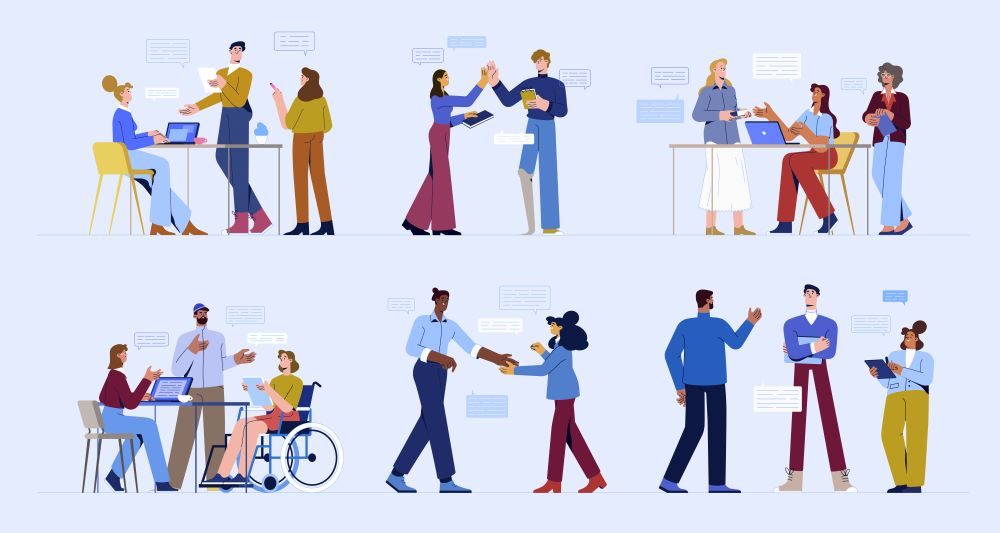Addiction rehabilitation programs are crucial in providing the support and treatment necessary for individuals to overcome substance use disorders and rebuild their lives. These programs often require a multidisciplinary approach, involving medical professionals, therapists, and support workers. Among these, Community Service Workers (CSWs) stand out for their unique and essential role in the recovery process. Armed with specialized training and a deep commitment to helping others, CSWs bring a range of skills and services that are vital to effective rehabilitation.
In today’s world, where addiction issues are increasingly complex and widespread, the contributions of CSWs have never been more important. From addressing the opioid crisis in urban areas to supporting individuals with alcohol dependency in rural communities, CSWs are on the front lines, making a tangible difference in the lives of those they serve. Here are the top five ways CSWs are transforming addiction rehabilitation programs, along with real-world examples of their impact.
Personalized Care and Case Management

CSWs excel in providing personalized care, creating tailored plans that consider the individual’s background, addiction history, and personal goals. This personalized approach helps clients feel understood and supported, which is essential for successful rehabilitation. For example, In Toronto, a CSW named Maria works at a local rehabilitation center where she manages individualized care plans for clients. By conducting thorough assessments and regular check-ins, Maria ensures each person receives tailored support, addressing their unique needs and challenges.
Crisis Intervention and Emotional Support
Addiction recovery is fraught with emotional highs and lows. CSWs are trained to handle crises, providing crucial emotional support that helps clients navigate these turbulent times. Their ability to offer empathy and practical advice during moments of crisis can be a turning point for many in recovery. For instance, in Calgary, CSW graduate Jack is part of a rapid response team that provides immediate support to individuals experiencing a crisis. His training in de-escalation techniques and emotional support has saved lives and prevented relapses.
Facilitation of Support Groups and Peer Networks

Support groups and peer networks are integral to addiction recovery. CSWs often facilitate these groups, creating a safe space for individuals to share their stories and learn from one another. This peer support is invaluable in reducing feelings of isolation and building a supportive community. Sarah, a CSW in Calgary, organizes weekly peer support groups where individuals in recovery share their experiences and support each other. These groups have become a cornerstone of the rehabilitation program, fostering a sense of community and mutual aid.
Advocacy and Resource Connection
CSWs advocate for their clients, connecting them with essential resources such as housing, employment, and healthcare. By bridging the gap between clients and these resources, CSWs help address the social determinants of health that are critical for long-term recovery. An ABM College’s Addictions and Community Service Worker Diploma Program alumni works with local non-profits to secure housing and employment opportunities for clients in recovery. His efforts have helped numerous individuals rebuild their lives post-rehabilitation.
Implementation of Holistic Therapies

Holistic therapies, including mindfulness, art therapy, and physical exercise, are increasingly recognized for their benefits in addiction recovery. CSWs integrate these therapies into rehabilitation programs, providing clients with additional tools to manage stress and promote overall well-being. Emily, a CSW in Toronto has introduced yoga and meditation sessions as part of the rehabilitation program. These holistic therapies have shown to reduce stress and improve mental health among clients.
Conclusion
Addictions and Community Service workers are at the forefront of addiction rehabilitation, offering personalized care, emotional support, and practical resources to those in recovery. Their diverse roles and compassionate approach make them indispensable in helping individuals rebuild their lives. By continuing to innovate and adapt to the needs of their clients, CSWs are transforming the landscape of addiction rehabilitation for the better.
ABM College’s 56-week Addictions and Community Service Worker Diploma Program equips graduates with the confidence to embark on a fulfilling career, offering support to individuals facing difficult circumstances. Offered at Calgary and Toronto campuses, this program empowers students with the essential skills to become front-line workers who assist individuals, families, and communities dealing with various challenges.
Contact us to learn more.
Read more blogs for relevant information.
About The Author

Private Career College
ABM College is a leader in career-focused education, committed to empowering students with industry-relevant skills. With expert instructors and practical training, ABM College delivers high-quality programs in health, business, technology, and more, ensuring graduates are prepared to meet workforce demands. Known for its supportive learning environment and a focus on real-world application, ABM College is a trusted educational partner helping students achieve professional success across Canada.
